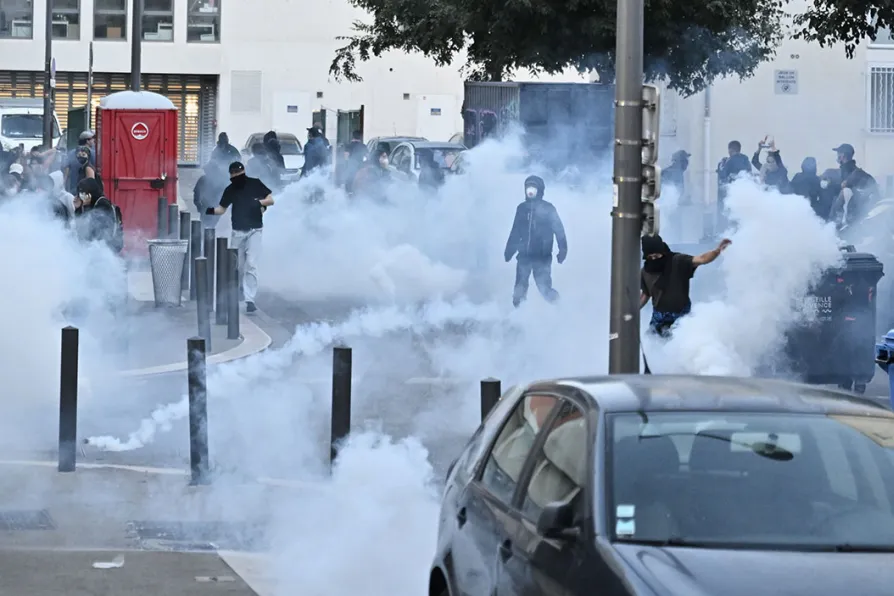
 French police fire tear gas grenades to protesters during a gathering of the "Block Everything" movement in Marseille, south of France, September 10, 2025
French police fire tear gas grenades to protesters during a gathering of the "Block Everything" movement in Marseille, south of France, September 10, 2025
PROTESTERS blocked roads, lit fires and faced volleys of police tear gas across France today, seeking to heap pressure on President Emmanuel Macron after his appointment of new Prime Minister Sebastien Lecornu.
Interior Minister Bruno Retailleau announced nearly 295 arrests in the first hours of the planned day of nationwide demonstrations.
Although the Block Everything protesters fell short of their declared intention, the movement caused widespread hotspots of disruption, defying an exceptional deployment of 80,000 police who broke up barricades and swiftly made arrests.
Mr Retailleau said that a bus had been set on fire in the western city of Rennes and that damage to a electricity cables halted trains on a line in the south-west. He accused demonstrators of tryng to create “a climate of insurrection.”
Protesters repeatedly tried to block Paris roads during the morning rush hour. They erected barricades and hurled objects at police officers, adding to the sense of crisis that has again gripped France following its latest government collapse on Monday.
The Block Everything movement gathered momentum over the summer on social media and in encrypted chats, calling for a day of blockades, strikes, demonstrations and other acts of protests.
The movement, which has grown organically with no identified leadership, has a broad array of demands — many targeting contested austerity measures that former PM Francois Bayrou championed before his demise — as well as broader complaints about inequality.
The spontaneity of Block Everything is reminiscent of the yellow vests movement, which started with workers wearing high-visibility vests camping out on roundabouts to protest at increases in fuel taxes. It quickly spread to people across political, regional, social and generational divides who are angry over economic injustice and Mr Macron’s leadership.










